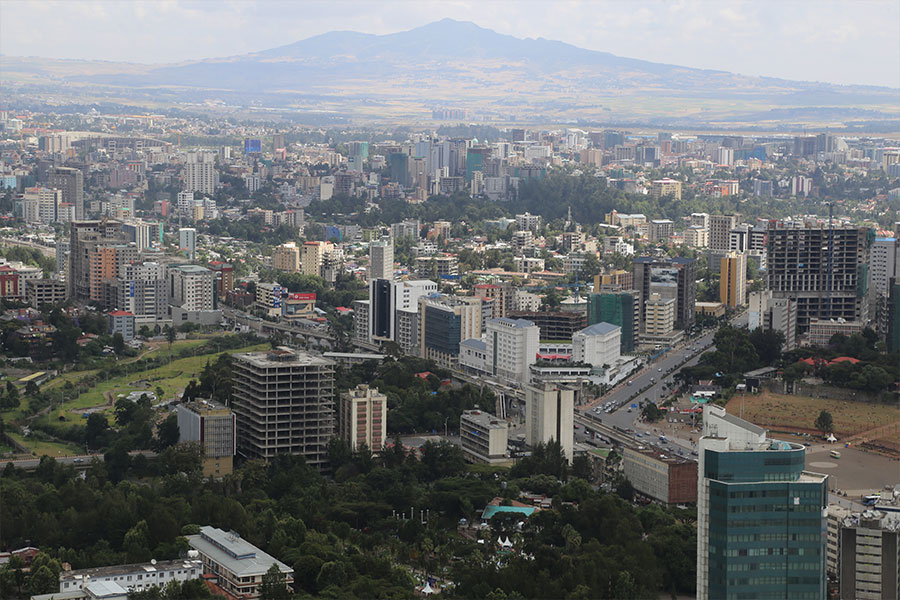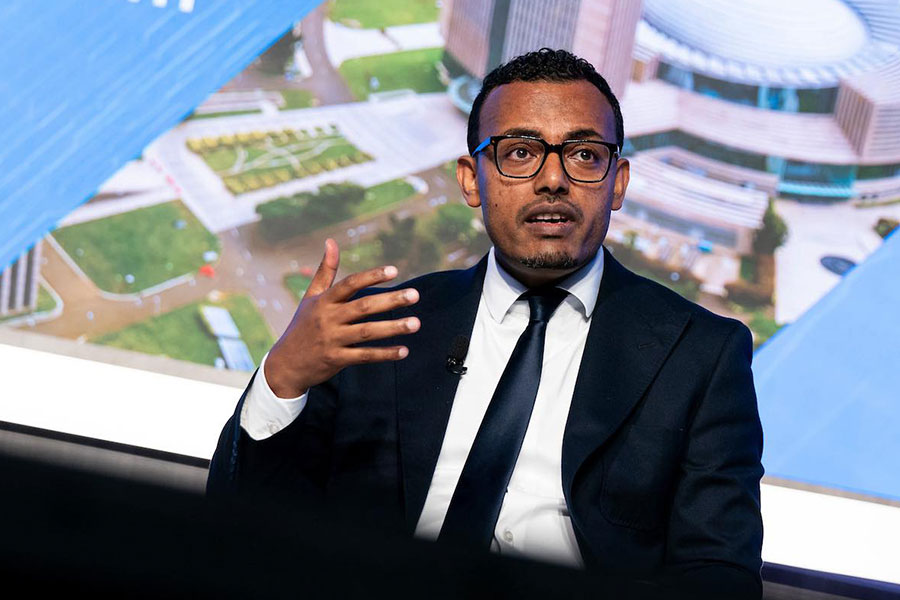
Agenda | Aug 28,2021
Apr 1 , 2023
By Kaushik Basu
Last week, the International Criminal Court (ICC) indicted Russian President Vladimir Putin for war crimes, alleging that he is responsible for forcefully removing Ukrainian children to Russia. The ICC’s 123 member states now have an obligation to arrest Putin if given a chance.
It is a groundbreaking development. Although diplomatic engagement with Putin has always been difficult, he has now evolved fully into a ruthless and unbridled tyrant.
Worse, Putin’s conduct is symptomatic of a broader trend. Around the world, democracy is increasingly under siege. The latest report on “The Global State of Democracy”, issued by the International Institute for Democracy & Electoral Assistance, documents an alarming erosion of democratic institutions worldwide. Over half of the 173 countries investigated in 2022 registered significant assaults on democracy.
From Afghanistan to Nicaragua, “almost half of all authoritarian regimes have worsened,” the authors conclude. In the Asia Pacific region, only 54pc of people live in a democracy, and almost 85pc of those live in countries where democracy is weak or sliding toward authoritarianism.
This is a worrisome trend. In a globalized world, containing rising authoritarianism cannot be left to individual countries. As we can see from recent global supply-chain disruptions – with Russia’s war in Ukraine exacerbating food shortages and inflation in Africa – the fallout from authoritarianism can be felt far and wide.
The question, then, is what international organizations like the ICC can do about it.
Strongmen who are full of insecurities have a natural propensity to morph into tyrants. From Hugo Chávez in Venezuela to Robert Mugabe in Zimbabwe and Recep Tayyip Erdogan in Turkey, recent history features many leaders who may have come to power with good intentions but turned worse over time, often ending up with blood on their hands.
I was alerted to this danger firsthand following a meeting with Nicaragua’s dictator, Daniel Ortega, in Managua in September 2013. Having admired his overthrow of Anastasio Somoza’s corrupt regime during my student years, I had long wanted to meet him. When given the chance, I enjoyed a long discussion about the Sandinista revolution and the challenges facing Nicaragua.
Since then, however, sordid revelations about Ortega’s tyranny have emerged. I did not realize it at the time, but the man I met was no longer the man who had overthrown Somoza. He had become the very thing he had once opposed.
How did this happen?
From political science and economics, we know that answers to big macro questions are often embedded in micro factors, and Ortega’s case is no exception. If you are a political leader, there comes a time when you must decide whether to try to prolong your time in office. And since politics is a nasty game no matter who you are, there is always a temptation to cross an ethical line – whether by raising money from cronies with the promise of favours, using official agencies to target opponents, or other nefarious means.
The decision depends on the gap between the utility the leader gets from remaining in office and the utility the leader gets from being out of office. The wider the gap, the greater the leader’s effort to stay in office.
However, this calculation involves a serious but common mistake, which behavioural economists often refer to as “dynamic inconsistency.” The problem lies in omitting a longer-term perspective. The more political leaders indulge in intrigue and evil to remain in office, the worse their exit option becomes. Prolonged abuse and intrigue increase the likelihood of law-enforcement investigations of the leader’s behaviour (or violent retribution from political opponents) when the leader is out of office.
That brings us back to the ICC’s arrest warrant.
Putin tested the limits of international justice for many years, and now there is an official effort to hold him to account. For that reason, he will now be even more desperate to hold on to power.
In today’s interconnected world, such behaviour has global fallout and thus needs to be addressed by the United Nations and organizations like the ICC. Determining precisely what to do will require much deliberation, but expanding the scope of international law – or even enshrining it in a global constitution – is evident, as is the need for a UN that can uphold minimal principles.
While there is much to discuss in the future, one immediate imperative is term limits. Whether to institute them should no longer be considered a question to be decided by the country concerned. Given the global dynamics of unchecked power within any given country, we are all interested in using international law to change the incentives that lead politicians down the road to authoritarianism.
There is significant variation in term limits. It is time to create a uniform standard to hold countries accountable.
PUBLISHED ON
Apr 01,2023 [ VOL
23 , NO
1196]


Fortune News | May 31,2025

Editorial | Jan 07,2024

Fortune News | Feb 10,2024

Fortune News | Jan 14,2023

Viewpoints | Apr 06,2019

Photo Gallery | 178342 Views | May 06,2019

Photo Gallery | 168543 Views | Apr 26,2019

Photo Gallery | 159333 Views | Oct 06,2021

My Opinion | 137067 Views | Aug 14,2021
Commentaries | Oct 25,2025

Dec 22 , 2024 . By TIZITA SHEWAFERAW
Charged with transforming colossal state-owned enterprises into modern and competitiv...

Aug 18 , 2024 . By AKSAH ITALO
Although predictable Yonas Zerihun's job in the ride-hailing service is not immune to...

Jul 28 , 2024 . By TIZITA SHEWAFERAW
Unhabitual, perhaps too many, Samuel Gebreyohannes, 38, used to occasionally enjoy a couple of beers at breakfast. However, he recently swit...

Jul 13 , 2024 . By AKSAH ITALO
Investors who rely on tractors, trucks, and field vehicles for commuting, transporting commodities, and f...

Oct 25 , 2025
The regulatory machinery is on overdrive. In only two years, no fewer than 35 new pro...

Oct 18 , 2025
The political establishment, notably the ruling party and its top brass, has become p...

Oct 11 , 2025
Ladislas Farago, a roving Associated Press (AP) correspondent, arrived in Ethiopia in...

Oct 4 , 2025
Eyob Tekalegn (PhD) had been in the Governor's chair for only weeks when, on Septembe...

Oct 25 , 2025 . By YITBAREK GETACHEW
Officials of the Addis Abeba's Education Bureau have embarked on an ambitious experim...

Oct 26 , 2025 . By YITBAREK GETACHEW
The federal government is making a landmark shift in its investment incentive regime...

Oct 29 , 2025 . By NAHOM AYELE
The National Bank of Ethiopia (NBE) is preparing to issue a directive that will funda...

Oct 26 , 2025 . By SURAFEL MULUGETA
A community of booksellers shadowing the Ethiopian National Theatre has been jolted b...